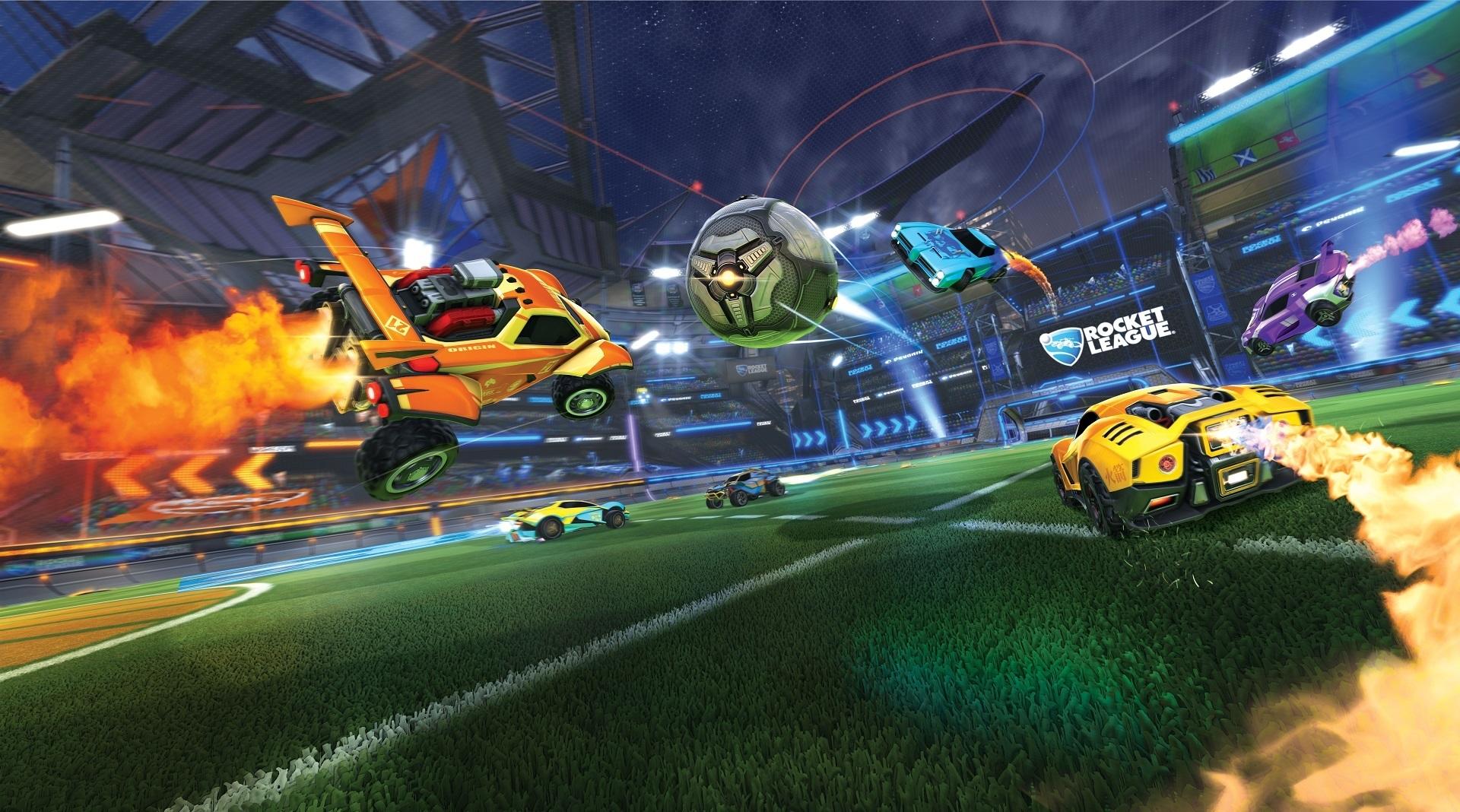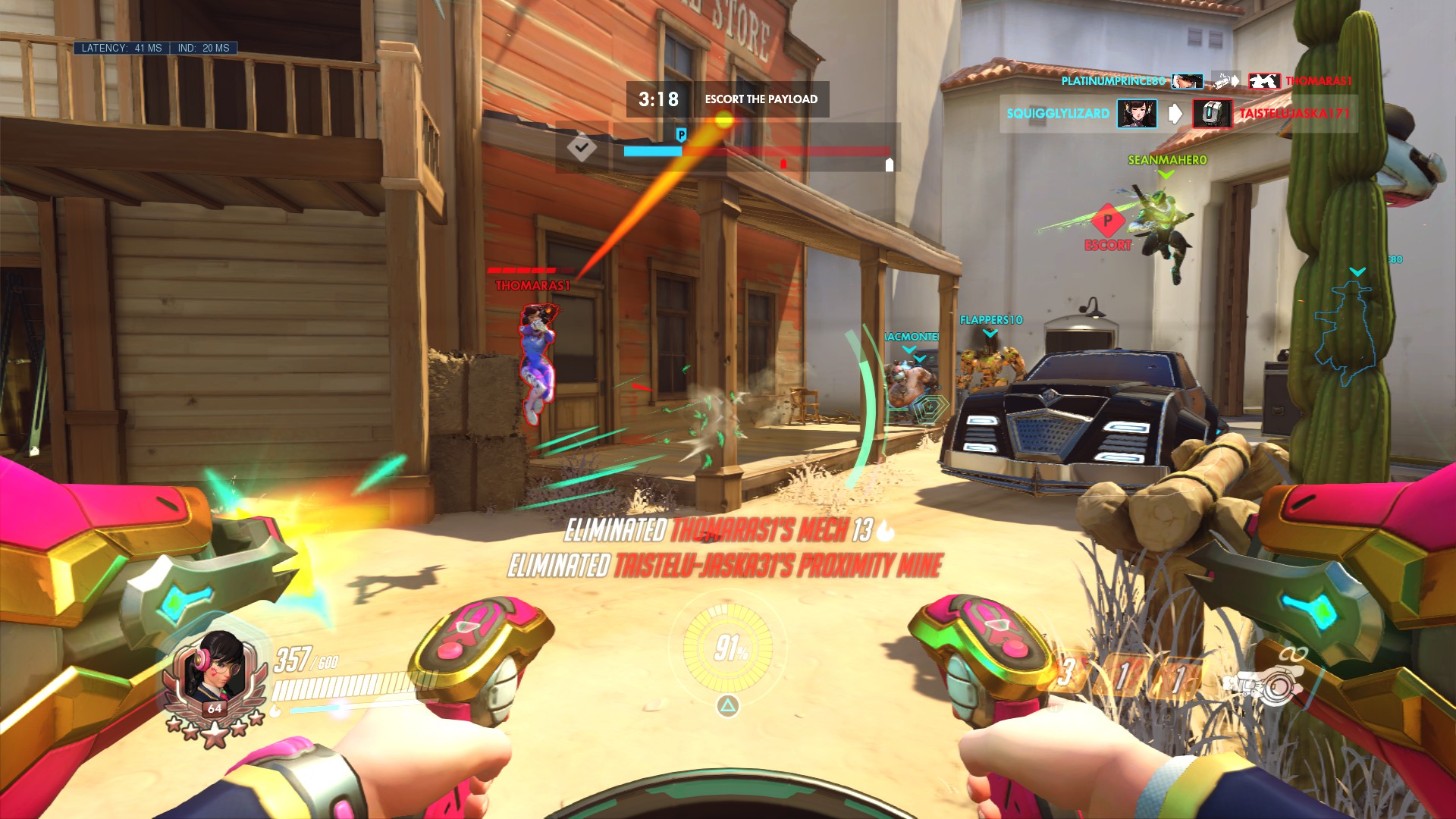"They swipe their ID and they have access to high-tier gaming PCs": How gaming became a college sport
Could esports be your ticket to a college scholarship?

The esports arena at Boise State University is coated with gaudy blue astroturf. If you're a fan of college football, you'll immediately recognize it as the mirror image of the eccentric azure field that the Broncos play on every autumn Saturday in Albertsons Stadium. Chris Haskell, a professor at the college who's served as the head of its corresponding varsity esports program for nearly three years, tells me that the organization specifically harvested the old turf from the school's archive after it was decommissioned and replaced in 1989. The program plastered it around Boise State's newly-built pro gaming thunderdome, as a way to subconsciously link the blue-and-orange gladiators on the gridiron, with the blue-and-orange gladiators defending the Overwatch payload. So far, it seems to be working.
"We follow every bit of campus culture that we can. We play every single one of our opponents in esports the same week we play them in football. If we're up against Florida State on Saturday, we'll be playing them in Overwatch, Rocket League, and League of Legends on Friday," says Haskell. "We hold tons of tournaments. This year we have different fraternities playing each other on our stage. We have majors play different majors. And after their matchup, maybe we'll take on Wyoming."
Haskell tells me that Boise State has a top-10 esports program in collegiate athletics. The University was the 18th school to add competitive gaming as a varsity sport in 2017, and today, the number of campuses that have followed Boise State's model has ballooned past the century mark. The University of California at Irvine built a state-of-the-art esports practice and performance arena, The University of Utah was the first school in a Power Five conference to add gaming to its repertoire, and Harrisburg University in Pennsylvania ditched the rest of the field entirely to host only one Dean-sponsored athletics program: Esports. Naturally, Harrisburg won the national championship in Overwatch earlier this year.
It wasn't long ago that collegiate esports organizations were shoestring operations – unofficially propped up by passionate students who wanted to bask in a fraction of the weekly football or basketball hype with little more than a LAN cable. Safe to say, it was difficult to get a comped absence or a chartered flight because you had an important Hearthstone match. These days though, after the world has been forced to reckon with esports more seriously, the schools are getting involved directly.
Building a better infrastructure

Freshly constructed esports multiplexes are towering over campus, governing boards like NAC Esports and TESPA are providing official centralized competitive infrastructure like the NCAA, and Haskell tells me that every season, Boise State goes through a rigorous recruitment process, where they attempt to lure some of the best prospects in the country to the University through a smattering of esports-specific scholarships. In total, Haskell speculates that varsity esports initiatives dish out "millions" of dollars in free tuition each year.
"The students that are heavily recruited to come here are the same students that are heavily recruited to go to Maryville or Irvine [two major college esports powerhouses.] The difference is that we have a greater number of students who come here with the possibility of being on the team, without the guarantee, because reserve teams are much deeper," he says. "We actually run multiple squads throughout the year so students can develop and train… about 25 percent of our esports players are recruited and come from outside the state."
Michael Fay, the director of esports at the University of Akron, echoes the same sentiment. His campus hosts a select number of recruits, with other walk-ons who've been promoted through the school's sizable underbelly of more recreational club teams. He reiterates that Akron's vision is multifaceted; the goal is to capture the full scope of the culture and business of esports, rather than the competition itself. There are so many ways to be involved in the industry without being a student-gamer.
Sign up to the GamesRadar+ Newsletter
Weekly digests, tales from the communities you love, and more
"We have group play events, free-play events, we have competitions on the weekends. We have a recreational gaming program where we have 24 PCs available for all students. They swipe their ID and they have access to high-tier gaming PCs with a library of games, and free accounts for most of those games," he says. "We have a student organization called the Zips Esports Network, which essentially focuses as an esports startup business. So students that want to try their hand at esports broadcasting, or community management, or event management – they can [earn] internship credit, and we have some paid positions."
Building a community

Fay's motivation to bring esports to Akron doesn't differ from most other commercial esports endeavors. He knew that there was a community of gamers on campus, and if the school invested in creating physical spaces for them to interact, they'd leave an indelible, collaborative tradition in their wake. In that sense student esports isn't much different from student radio; the trade skills are valuable, but it's the friendships and teamwork – the Thursday nights spent with other people you've met through the program – that leave the longest legacy.
Of course, the central irony is that the football players at Boise and Akron have the chance of making the NFL, and converting the thankless, unpaid labor of amateur sports into a lucrative professional career. I suppose abstractly, that same opportunity exists for the gamers under collegiate banners, but in a much more roundabout way. Esports functions under the European model; there is no draft, meaning that some of the best players in the world can be as young as 15. Why would you ship off to a university derby, when true wunderkinds are filing into the bright lights and indomitable Twitch metrics of the Blizzard Arena?
That question requires a rescoping of the way we've been taught to think about esports. This industry is clogged with so much money – so many towering tournaments with war chests full of first-place cash – that often nobody cares to check the receipt. College programs, on the other hand, aim to build from within. To create esports for a very specific community of students, and let the estate appreciate from there. It is lower-stakes, but it is far more honest than some of the more difficult to stomach overplays you see in this business. Haskell says he's already reaping the rewards.
"This is what's going to add longevity to esports. Collegiate esports, while not the flashiest, $3-million-to-a-teenager headline-grabber – all universities have tribes. We've seen unbelievable support for esports from people who have no idea what's happening in the game. But they know when there's cheering, their Broncos are beating up on Oklahoma, and that's a relationship they understand," he finishes. "[College esports] will always be smaller matchups, but it's these tribes that are going to indoctrinate the next generation of esports fans and college fans."
Enrol in the best video game schools for a virtual education like no other by playing the best video games set in schools, from Bullworth Academy to Centerscore High
Luke Winkie is a freelance journalist who specializes in interview-driven reporting and long-form feature writing. He's contributed to GamesRadar+ and PC Gamer, of course, but you'll also find his bylines all across the internet. We're talking the Washington Post, New York Times, New York Magazine, GQ, Slate, Vice, Rolling Stone… honestly, the list just goes on and on, and for good reason.


